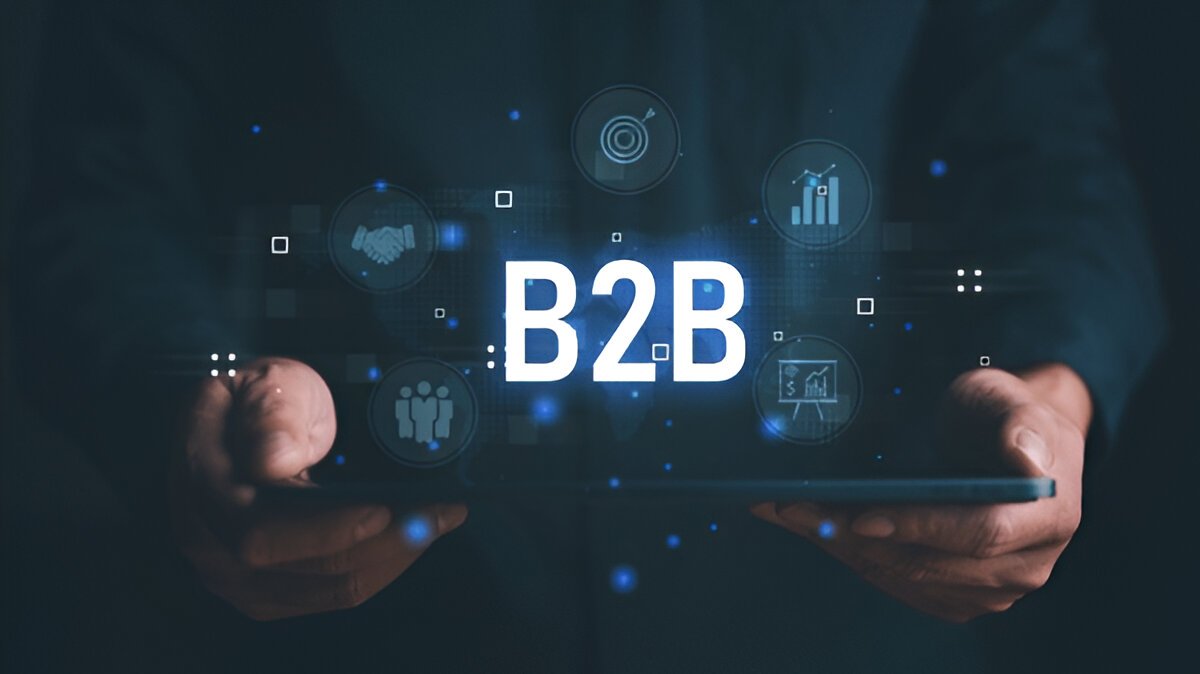This is the world of B2B markets. When we think of products available on the market, we tend to think of consumer goods, such as clothing, electronics, or food. And yet, there is another enormous, equally fast-moving market powering those consumer products.
The B2B market includes businesses that are selling to other businesses as opposed to consumers. These B2B products — from manufacturing materials and hardware to software helping back-office tasks — are often more discrete building blocks that can be easily folded into the day-to-day operations of many businesses.
By the end of this post, you’ll have a clearer concept of what is a B2B product is and what it is not. There will be examples of things that are B2B, despite what you may think, what some decisive factors are when building B2B, and new trends that are driving changes in this market. Please read on as we delve into the importance of B2B products in today’s business landscape.
To explore more articles like this, visit our Home Page
Defining Characteristics of B2B Products
B2B products are designed to serve the needs of businesses, often differing from consumer-focused offerings in their size, scope, and purpose. To help you identify products within this market, here are the defining characteristics:
1. Tailored for Operational Efficiency
B2B products, unlike consumer products, are generally intended to make operations easier, more efficient, to allow other companies to provide their services in an effective manner. Such as equipment used in production or enterprise software for project management.
2. Higher Volume and Larger Quantities
B2B transactions are typically bulk transactions at volume. For example, a restaurant purchases foodstuffs in bulk from distributors, and retailers get inventory in volume from wholesalers.
3. Complex Buying Process
In the B2B sector, buying decisions are influenced by several stakeholders like the procurement team, heads of departments, and financial managers. This sort of suggests a long-winded review period where they trial products, debate and compare on X and Y.
4. Longevity and Reliability
Don’t forget: Many B2B buyers ensure that what they buy is durable and will provide long-term value because their purchases, such as industrial equipment or technology solutions, are often big investments designed to last for years.
Understanding these characteristics highlights why products in the B2B market are so essential to the functioning of businesses worldwide.
Examples of B2B Products and Industries
B2B products vary widely across industries, showcasing their adaptability and importance. Here are some notable examples:
1. Raw Materials
These include the fundamental supplies used in manufacturing, like metal sheets for construction, plastic pellets for product molds, or lumber for furniture production.
2. SaaS (Software-as-a-Service) Solutions
Many businesses rely on SaaS solutions like Slack, QuickBooks, or Salesforce for communication, accounting, and customer relationship management.
3. Machinery and Equipment
From printing presses to forklifts, equipment is critical to industries like manufacturing, logistics, and agriculture.
4. Marketing and Advertising Services
Marketing agencies offering branding, SEO optimization tools, or online ad management solutions are also part of the B2B market.
5. Consulting and Professional Services
Legal counsel, financial advisory, and IT consulting services are prime examples of B2B offerings that support businesses in specialized areas.
The diversity of B2B products reflects the variety of industries they serve, making their role in the global economy indispensable.
Factors Influencing B2B Purchasing Decisions
B2B purchasing is a meticulous process guided by key considerations. Here are the factors that often influence decisions among businesses:
1. Product Quality and Reliability
B2B buyers prioritize products that consistently meet their operational needs. Quality and reliability directly affect their ability to serve their customers.
2. Cost and Value
While pricing is important, value takes precedence. Buyers assess the ROI (return on investment) a product can provide, factoring in durability, efficiency, and long-term benefits.
3. Customization and Scalability
Flexibility to customize products to meet unique business requirements is vital in the B2B landscape. Additionally, as businesses grow, products that can scale to accommodate growth hold significant appeal.
4. Vendor Reputation and Support
A reliable supplier with positive industry standing is often preferred. Post-sale support, including maintenance, updates, and customer service, can heavily influence purchasing decisions.
5. Technological Advancements
Tech-savvy businesses often look for products incorporating the latest advancements, whether AI-powered software or IoT-enabled machinery.
Understanding these factors allows sellers in the B2B space to tailor their offerings to meet the precise expectations of business customers.
Trends and Future of the B2B Market
The B2B market constantly evolves, driven by technological advancements and shifting customer demands. Here’s a look at some exciting trends shaping its future:
1. Digital Transformation
Increasing digitization has revolutionized the B2B market. Online platforms, such as Alibaba and ThomasNet, make it easier for businesses to find and purchase B2B products, all from the convenience of their computers.
2. AI-Powered Solutions
Artificial intelligence plays an important role in automating processes, predicting buyer behavior, and enhancing experiences. AI-driven chatbots and recommendation systems are quickly becoming standard in the B2B sales process. (Curious about AI applications? Learn more with this in-depth guide from Forbes.)
3. Focus on Sustainability
Environmental issues are pushing businesses to adopt sustainable practices. B2B buyers now look for eco-friendly products that align with their values.
4. Personalization in B2B Marketing
While previously seen as a trend for consumer markets, personalization has entered the B2B space. Businesses now expect tailored solutions, offers, and communications that cater directly to them.
5. Subscription-Based Models
SaaS (Software-as-a-Service) and Equipment-as-a-Service (EaaS) enable businesses to access high-quality products and services more affordably without incurring significant upfront costs.
By adapting to these trends, the B2B market can continue to grow while meeting the dynamic needs of modern enterprises.
Why Understanding B2B Products Matters
And B2B products are the backbone of the global economy, empowering businesses to run efficiently, innovate, and provide valuable goods and services to consumers. By learning the subtleties of this market, the buyers in organizations can make decisions, and its sellers can offer more focused and potent solutions.
Whether you are a buyer or a supplier in the B2B ecosystem, it is important to stay up to date on the current trends and influences shaping the industry. The more you know about how this market works, the more likely you are to succeed.





